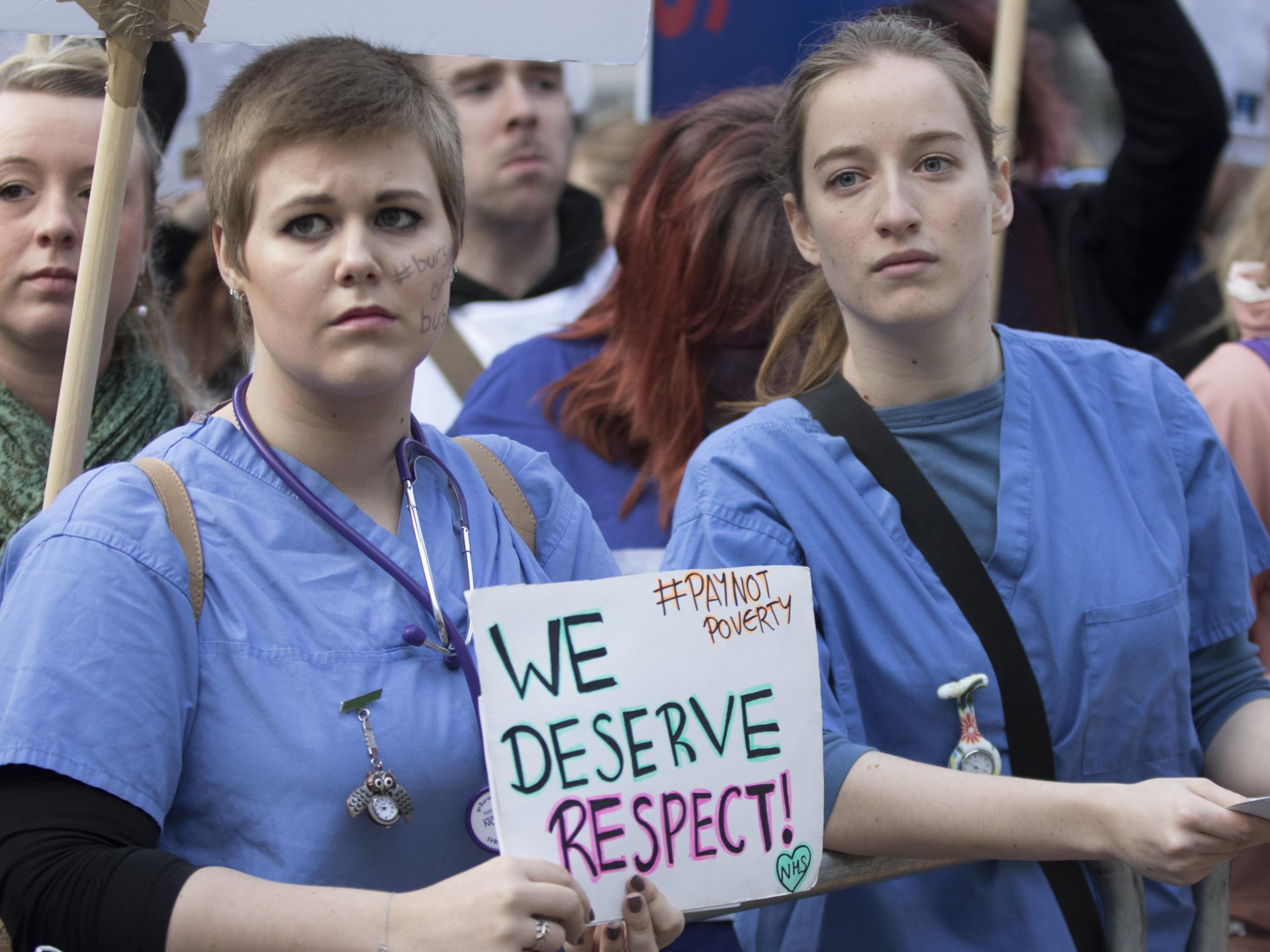Nurses vote overwhelmingly to strike for first time ever over 1% pay rises
More than 50,000 of the Royal College of Nursing’s 270,000 members took part in the poll

Your support helps us to tell the story
From reproductive rights to climate change to Big Tech, The Independent is on the ground when the story is developing. Whether it's investigating the financials of Elon Musk's pro-Trump PAC or producing our latest documentary, 'The A Word', which shines a light on the American women fighting for reproductive rights, we know how important it is to parse out the facts from the messaging.
At such a critical moment in US history, we need reporters on the ground. Your donation allows us to keep sending journalists to speak to both sides of the story.
The Independent is trusted by Americans across the entire political spectrum. And unlike many other quality news outlets, we choose not to lock Americans out of our reporting and analysis with paywalls. We believe quality journalism should be available to everyone, paid for by those who can afford it.
Your support makes all the difference.Nurses are to stage a summer of protests across the UK after a poll showed strong support for strikes over pay.
The Royal College of Nursing (RCN) warned that unless the next Government drops the 1 per cent cap on pay it will hold a ballot on industrial action later this year, threatening the first ever strikes by its members.
The RCN said nurses voted in a consultative ballot with nine out of 10 supporting action short of a strike, while almost four out of five backed strikes.
More than 50,000 of the RCN’s 270,000 members took part in the poll. Another ballot would have to be held before any action takes place.
The RCN has warned that low levels of pay are partly responsible for tens of thousands of unfilled nursing posts.
Nurses have suffered a 14 per cent pay cut in real terms since 2010 because of a government cap on public sector pay, said the RCN. The formal pay cap of 1 per cent was introduced in 2015.
Michael Brown, chairman of the RCN Council, said: “Our members have given us the very clear message that they can’t and won’t take any more.

“This is an unprecedented show of anger and frustration over the Government’s pay policy. Politicians must now listen and tell us what they will do about nursing pay.
“It’s a message to all parties that the crisis in nursing recruitment must be put centre stage in this election. We’re demanding answers on behalf of our patients as well as nursing staff.
“If we don’t stand up now, how can we guarantee their future safety and wellbeing?”
If the strike goes ahead, it will be the first time industrial action has been taken in the nursing union’s 100-year history.
Janet Davies, general secretary of the RCN, said: “What’s happened today is unprecedented for the RCN and is a reflection of the deep anger members feel.
“The current conditions in the NHS are driving people out of the profession and putting new people off entering it.
“Our argument is not with patients – this is about ensuring that they get the safe and effective care they need. The 1 per cent cap on nursing pay is putting patient care at risk.
“It’s not just the RCN saying this – we heard from NHS trust leaders last week that if nursing staff aren’t paid a proper wage, they won’t be able to keep patients safe.
“The next Government must tell us what they’re going to do about nursing pay to stop the nurse staffing crisis.”
Jon Skewes, director of policy at the Royal College of Midwives, said: “NHS staff have now seen seven years of pay restraint and with at least another three years on the horizon.
“Continuing pay restraint is a disastrous, unsustainable policy for maternity services and the NHS. We are working with other NHS trade unions to break the Government’s policy of pay restraint.”
Dr Mark Porter, British Medical Association council chair, said: “Year after year of real-terms pay cuts have had a damaging impact on the morale of frontline NHS staff.
“Ongoing pay restraint has seen doctors’ pay fall by up to 17 per cent in recent years, leading to staff shortages and impacting on patient care, and doctors across the country will agree with the very strong message sent today by nurses, that the pay cap is unfair, unacceptable and must be lifted.”
Press Association
Join our commenting forum
Join thought-provoking conversations, follow other Independent readers and see their replies
Comments